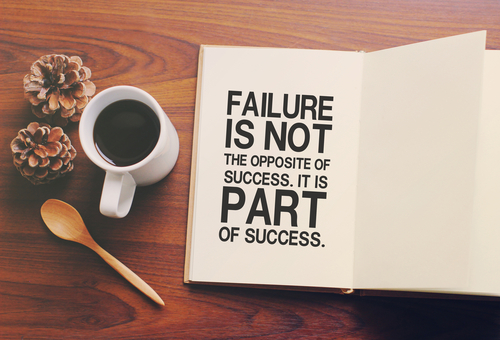It is midnight in Melbourne, and I cannot sleep. I hate jet lag.
Tomorrow, at 10:30 AM, I will buckle my seat belt for a 22-hour journey back to the United States. I need to sleep, but sadly I cannot. I love Australia, but I hate the trip. So, tonight I went for a midnight walk, and have called room service for some coffee. I think that I will pass the time before I put my exhausted body in a seat to fly home by sharing some reflections on my experience here.
I have spent the last three days with 200 SAP users at an Eventful Group Conference. The event team put me to work. I led four discussion groups, gave a keynote, presented on master data management and then taught a workshop on supply chain excellence. I enjoyed it. The folks in Melbourne were gracious and no-nonsense. They were hungry for information. Many had traveled many miles to come to the event. (e.g., I was surprised to have a wonderful woman from Chile in my class yesterday from Komatsu. I find teams in South America are thirsty for information on supply chain excellence.)
Similar, Yet Different
As I walked Collins Street at midnight, my mind was churning on how the folks at the event were different, but similar to the recent events that I have done in the states. How were they different? Their organizations were smaller, their understanding of supply chain was more basic, and their focus was more pragmatic than most groups that I speak to. I enjoyed the no-nonsense approach. How were they similar? The group struggled with how to use the software that they have bought, they are frustrated that they cannot access the data that they need, and they are not clear on the definition of supply chain excellence. I believe that companies all over the world have implemented supply chain projects without a holistic view of value. As a result, they have not maximized the potential of their investments.
I love designing quantitative research studies. In the design, I always ask a question on business pain of the company; but recently, I have started asking a question about the pain of the individual in the company. The questions sound similar, but the outcome is very different. It is my belief that the pain of the individual in supply chain is rising and that we are not addressing it well. I am now analyzing my third survey where I have asked this question, and I am getting similar responses as shown in figure 1.
Figure 1: Top Three elements of Supply Chain Management Pain
 So, as I worked with the groups at the conference this week, I shared this slide and asked them for feedback. “Was this their business pain?” It resonated. It was.
So, as I worked with the groups at the conference this week, I shared this slide and asked them for feedback. “Was this their business pain?” It resonated. It was.
So, at the event, I listened with a new ear to understand “why they could not get to data” and “what is the gap of knowledge and understanding of supply chain by the executive team?”
And, before my good friends at SAP call me to talk about why I have it all wrong, let me share that I think that this has nothing to do with SAP or the use of Business Warehouse Accelerator, or the evolution of HANA, or the good work that they have done with Business Objects. I believe that this problem is universal across industries, continents, and software solutions for supply chain management. Here are my insights:
We Got Here on the Wrong Road. Supply chain management is now thirty years old. In the evolution, most companies implemented projects. They were sold technology. The average company now has over 150 distinct software systems. Consultants swarmed on implementations without any practical knowledge of supply chain touting best practices. We do not have Best Practices. We have EVOLVING PRACTICES.
Supply chain teams not knowing any different believed them. And, in their defense, the consultants do have insight on how to implement the technology. What was not clear then, but is exceedingly clear now, is that the technology is only the enabler. It is about much more than bolting in the technology. Instead, it is about the effective USAGE of the software.
What was not clear then, and is still not clear for most, is how the multiple sets of technologies needed to be designed to drive value-based outcomes. As a result, project after project was implemented without a clear understanding of the definition of supply chain excellence. Metric systems were designed without ensuring the availability of inputs. Companies have not learned that when it comes to supply chain excellence, that you do not start with process. Instead, you need to start with business strategy, define value-based outcomes through a supply chain strategy, use this to build supporting cross-functional metrics to view the business holistically, and then define the supporting processes. The problem is not with the BI tools, it is with what we are asking them to do.
Enlightened Leadership Is a Hard Nut to Crack. The lack of leadership and understanding by the executive team on supply chain excellence is tougher. These projects are typically led by an enlightened mid-level manager. And, there is a belief that the project will be more successful with the support of the executive leadership team. This is true if the executive team is knowledgeable and understands supply chain excellence. The unfortunate reality is that most are not. It is a rare team that I encounter that has this support.
This problem is usually made worse by software sales teams and consulting groups. The providers of software have limited the potential of the market by selling software versus enabling a better way to run a business. It is like a car manufacturer selling cars when there is no place for people to learn how to drive or read a map. While the software sales people have made it a bad situation, the consultants have made it much worse. It saddens me to see that most consulting partners think that they know what supply chain excellence is, but they do not. They do not see the problem. They have been rewarded for many years for a project-based approach, and most lack grounding in supply chain excellence. I have a very short list of folks that I think do it well. This will be an upcoming blog post. Let’s just leave it here as I am still working on this one.
We Focused on the Wrong Goal. Companies have focused on project implementation not on software usage to solve a business problem. Software sales cycles were long and companies pushed to get software implemented fast. Most companies do not use the software that they have installed. They cannot get to the right data. In the webinar that I will present on Wednesday, I see an inverse relationship between short implementations and business value. Over the last 9 years, I have worked with over 400 companies selecting and implementing software. This experience has given me a great reference point to now look at the impact of these projects against the corporate financials. The companies that have achieved the most on the Supply Chain Effective Frontier implemented slowly with strong leadership against the goal.
Conquering the Supply Chain Effective Frontier
I am passionate about supply chain. I believe that effective supply chain processes improve economies, minimize environmental impact and improve the satisfaction of employees in companies. I am bothered that we have made these mistakes. As a result, I have written a research report and built a webinar series around it. Please join us for these insights on Supply Chain Excellence on Monday. The sign-up for the webinar is http://t.co/2PD0xBPT. (We are doing a review of process industries in our September webinar and discrete/high-tech in our October webinar.) I am very excited about the methodology that we have built. I spent six months developing and testing it. I share insights on the work that we are doing in the report Conquering the Supply Chain Effective Frontier . It is the essence of the book Bricks Matter which is now publishing in early December .
Conclusion
As I walked the streets of Melbourne in my sleepless state what troubles me most is that many companies are looking to speed up their current SAP processes through the use of in-memory processing with HANA analytics. Let me state for the record that I am a big fan of HANA and love some of the new SAP analytics capabilities. My caution to business users is be careful. I worry that we are going to speed up the wrong things versus taking a step back and rethinking business value. I want to see companies do value stream mapping and focus on a clear definition of supply chain excellence and then re-implement to make the right business decisions faster.
Thoughts? I would love to hear from you. And, I am hoping that you can join us for our webinar on Monday.






